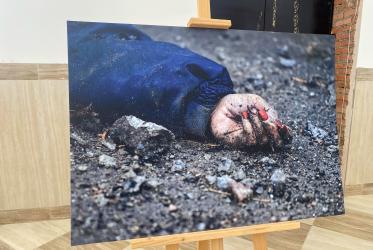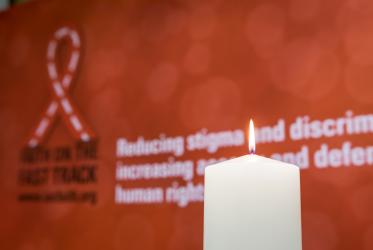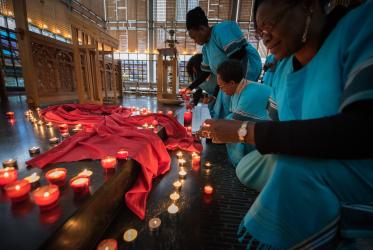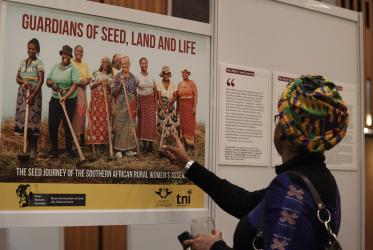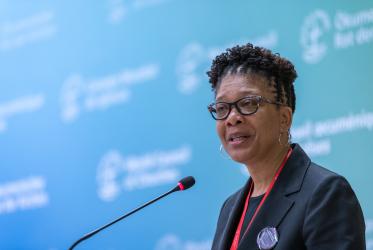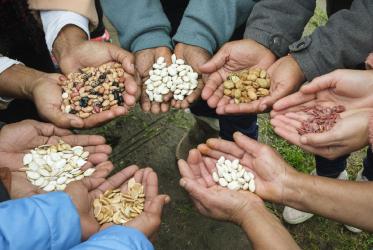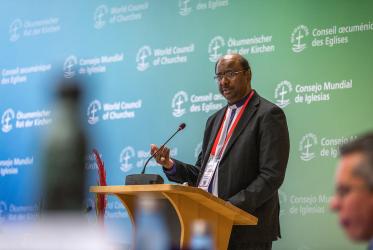Displaying 41 - 60 of 936
Beginning soon: 16 Days against Sexual and Gender-Based Violence
21 November 2023
WCC Eco-School begins in Crete
15 November 2023
WCC guide raises awareness of obstetric fistula
26 October 2023
World Council of Churches hosts "Guardians of seeds" exhibition
18 October 2023
Recommended Practices to Combat HIV-Related Stigma
A Guidebook for Local Faith Communities
05 October 2023
Faith Sector Implementation of the Global AIDS Strategy
05 October 2023
